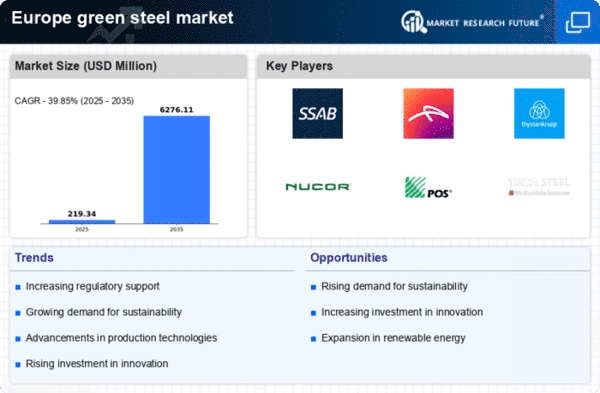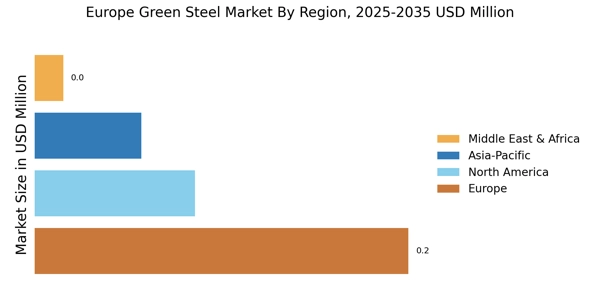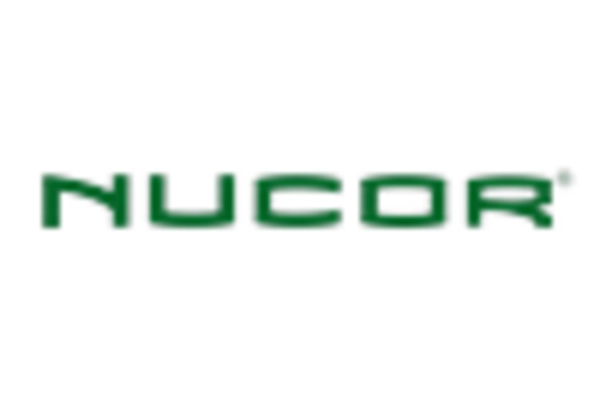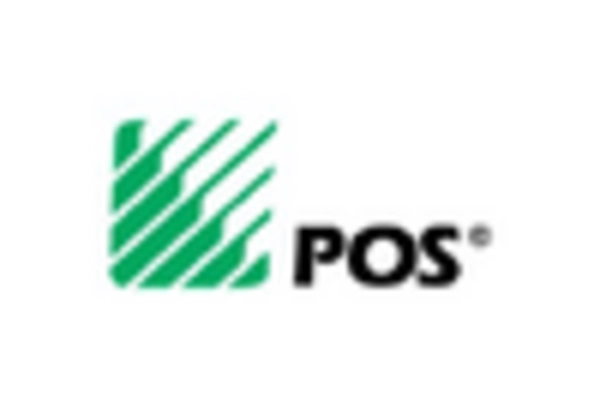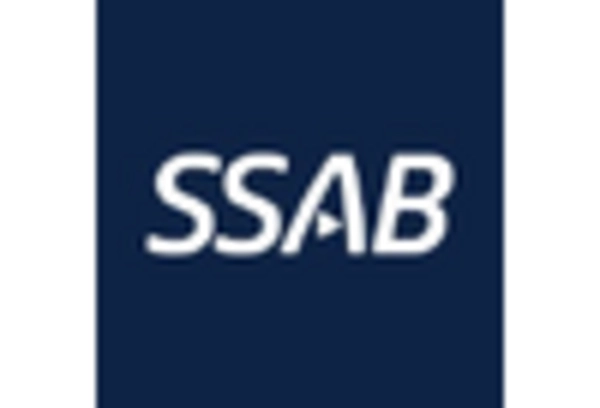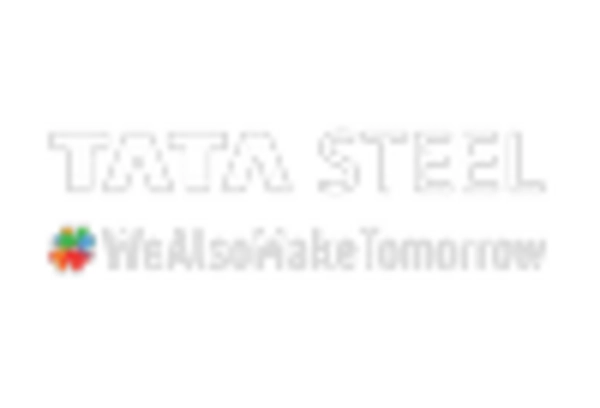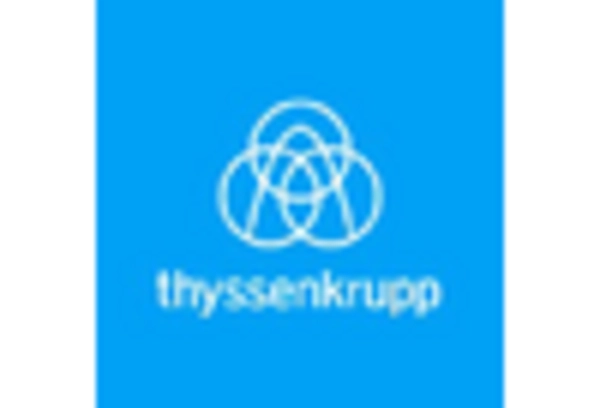Rising Carbon Emission Regulations
The green steel market in Europe is shifting due to stringent carbon emission regulations. Governments are implementing policies aimed at reducing greenhouse gas emissions, which directly impacts the steel industry. For instance, the European Union has set ambitious targets to cut emissions by at least 55% by 2030 compared to 1990 levels. This regulatory environment compels steel manufacturers to adopt greener production methods, thereby driving the demand for green steel. As a result, companies that invest in sustainable practices may gain a competitive edge, potentially increasing their market share in the green steel market. Furthermore, the financial implications of non-compliance with these regulations could lead to substantial penalties, further incentivizing the transition towards greener alternatives.
Investment in Renewable Energy Sources
Investment in renewable energy sources is a key driver of the green steel market in Europe. The integration of renewable energy into steel production processes significantly reduces carbon footprints. For example, the use of wind and solar energy in electric arc furnaces can lower emissions by up to 70%. As Europe aims to transition to a low-carbon economy, the demand for green steel is likely to rise. The European Commission has allocated substantial funding to support renewable energy projects, which could enhance the feasibility of green steel production. This investment not only supports sustainability goals but also positions the green steel market as a viable alternative to traditional steel, potentially attracting new investors and stakeholders.
Growing Corporate Sustainability Initiatives
The green steel market in Europe is driven by a growing emphasis on corporate sustainability initiatives. Many companies are setting ambitious sustainability targets, including commitments to reduce their carbon footprints. For instance, major automotive manufacturers are increasingly sourcing green steel to meet their sustainability goals, which could account for a significant portion of their supply chain emissions. This trend is likely to create a robust demand for green steel, as companies seek to align their operations with environmental standards. Furthermore, the increasing pressure from consumers and investors for transparency in sustainability practices may compel more businesses to invest in green steel, thereby expanding the market. The alignment of corporate strategies with sustainability objectives could lead to a more resilient and competitive green steel market.
Technological Innovations in Steel Production
Technological innovations are transforming the green steel market in Europe. Advancements in hydrogen-based steelmaking processes, such as direct reduction of iron using hydrogen, are gaining traction. These technologies can reduce CO2 emissions by up to 95% compared to conventional methods. The European steel industry is increasingly investing in research and development to enhance these technologies, which may lead to more efficient and cost-effective production methods. As these innovations become commercially viable, they are expected to drive the growth of the green steel market. Moreover, collaboration between industry players and research institutions is likely to accelerate the adoption of these technologies, further solidifying the market's position in the broader steel industry.
Public Awareness and Advocacy for Sustainable Practices
Public awareness and advocacy for sustainable practices are becoming influential drivers in the green steel market in Europe. As consumers become more informed about the environmental impacts of traditional steel production, there is a growing demand for sustainable alternatives. Advocacy groups are actively promoting the benefits of green steel, which may lead to increased consumer preference for products made from sustainable materials. This shift in consumer behavior could encourage manufacturers to prioritize green steel in their production processes. Additionally, educational campaigns and initiatives aimed at raising awareness about the importance of sustainability in the steel industry are likely to foster a more supportive environment for the green steel market. The interplay between public sentiment and market dynamics could significantly influence the trajectory of the green steel market.


